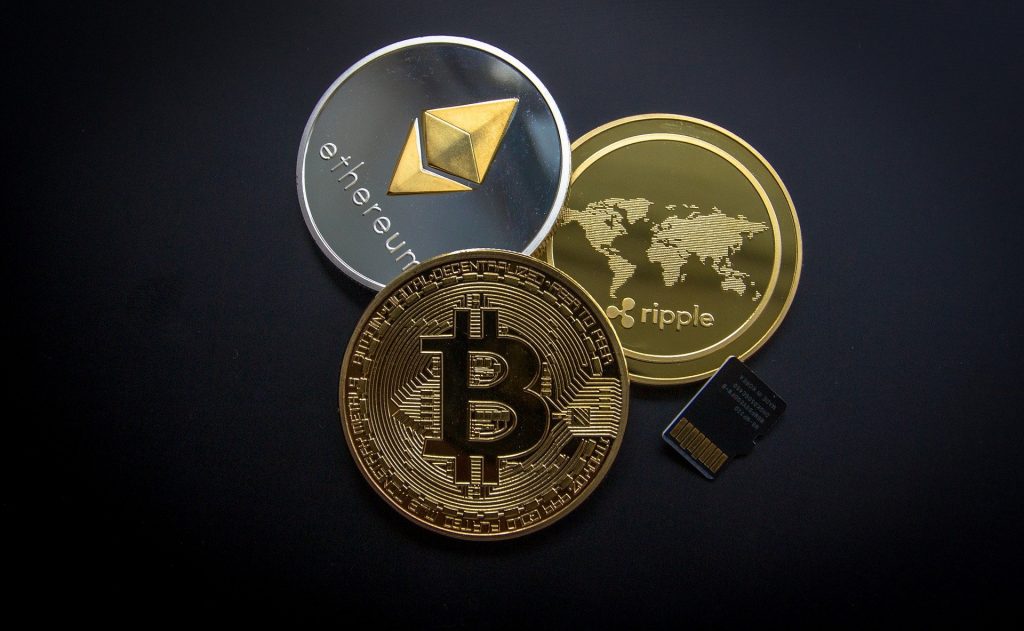More than half of Cairo’s municipal waste is collected by the informal sector, which consists of 50,000 waste processors and 150,000 collectors, sorters, traders and truck drivers. Of all the municipal waste collected, 80% gets recycled, including 290,000 tons of plastic per year.

Cairo’s waste collectors (zabbaleen) have gathered, sorted and recycled the city’s trash for more than 60 years. Yet, their key role in the city’s circular economy has gone unacknowledged.
Today, that is changing. DORNA, a system supported by multinational corporations and the government, puts the zabbaleen’s work in the spotlight and empowers their businesses with the help of simple digital technology. DORNA, which started in 2019, initially incentivized the zabbaleen to boost their collection of PET plastics in exchange for money transferred to their e-wallets.
According to Laila Iskandar, founder board member at CID Consulting and former minister of state for urban renewal and informal settlements in Egypt, the initiative uses a “reverse credit” approach, a monetary incentive paid to waste collectors, sorters and processors on their e-wallet. This monetary incentive is paid by the partnering companies responsible for originally producing plastic. The money is transferred electronically to all workers across the value chain including collectors, sorters, traders and processors. Every transaction along the value chain is logged and confirmed via SMS message, and recyclers are paid through e-wallets.
DORNA has the backing of the Ministry of the Environment, which lauds this model as Egypt’s first socially inclusive extended producer responsibility (EPR) system. EPR is mandated by Waste Management Law 202 of 2020, which will eventually extend social protection to informal garbage collectors by designating them “recyclers” on national IDs.
In interviews with Business Monthly, DORNA stakeholders Iskandar; Moataz El Hout, CEO and Chairman of Nestlé Egypt and Mohamed Shelbaya, CEO of PepsiCo Egypt, talk about their objectives, achievements, challenges and future plans. Nestlé Egypt has been working closely with CID Consulting since 2019 to set the framework for operations and ensure smooth implementation. PepsiCo Egypt joined DORNA in April under their “Recycle for Tomorrow” platform.
The Q&As have been edited for length and clarity.
What sparked the idea to launch DORNA in Egypt and what’s the story behind the name?
Moataz El Hout: As part of our global commitment and in response to European Union directives for Extended Producer Responsibility (EPR), we devised a “plastic roadmap” comprised of three pillars: developing packaging for the future, helping to shape a waste-free future, and driving new behavior and understanding of recycling.
We chose DORNA for Egypt, a direct translation of “our role” because we wanted to create an emotional connection built on a shared sense of responsibility and, most importantly, the inclusion of various stakeholders. We strongly believe working collectively is the best way to protect the environment and create social and economic impact.
How does DORNA support Egypt’s role in the circular economy?
Laila Iskandar: In a linear economy, materials are made into products, consumed and then disposed of. The circular economy model is one in which the entire life cycle of a product is taken into account. Materials are designed with a view to their circulation in the economy from cradle to cradle – rather than from cradle to grave. DORNA aims to boost the recovery and recycling of plastic packaging to preserve the environment. This also reduces plastic waste.
What’s your investment in DORNA?
El Hout: Our total investment in DORNA so far has been more than EGP 30 million.
Mohamed Shelbaya: In 2021, our investment was based on the amount we collected and recycled. By the end of the year, we exceeded our target by actually collecting 11,600 tons. This year, we plan to collect 15,000 tons of our PET production, which is equivalent to more than 500 million bottles. Our partnership with DORNA is definitely not a hit-and-run, rather we aim to play a remarkable and sustainable role. We also urge other private sector companies to join DORNA and help create a more sustainable future.
How is DORNA designed to incentivize the informal sector to increase recycling efforts?
Iskandar: We conducted a thorough study with Nestlé Egypt on all the recovery routes of plastic. We concluded the informal sector recovers the highest volume. The outcome of this study informed the design of the reverse credit system by placing a minimum monthly threshold slightly above the prevailing average collection rate to incentivize increased collection.
What were the challenges of recycling before DORNA, and how were they overcome?
Iskandar: Informal waste recyclers have been playing a significant and critical role in collecting and recycling the city’s waste for more than 70 years, yet their contribution to keeping our cities clean and recycling waste has not been quantified or tracked. They do not perceive their jobs as managing waste as much as harvesting materials to trade. They are not formally contracted by municipalities. This institutional and financial structure prevents them from being financially rewarded and limits their recovery and recycling rates.
When we designed DORNA with Nestlé Egypt, we did so while fully recognizing the existing PET plastic value chain created by the informal sector. We sought to introduce a digital system that would not only financially incentivize them to increase their recovery and recycling rates for PET plastic, but integrate itself along the existing value chain to avoid disrupting well-established operations and trading relationships.
How many workers are you partnering with under DORNA?
Iskandar: Over 2,600 informal waste collectors are on boarded to DORNA; more than 20% are women.
What’s the minimum threshold per month for informal workers to receive reverse credit?
Iskandar: 1.3 tons per waste collector/sorter. The incentive paid per ton is calculated based on the actual cost of handling the material, determined during the initial in-depth study by CID Consulting and Nestlé Egypt.
How do you ensure transparency in measurements among informal workers?
Iskandar: The DORNA digital platform includes a robust tracking system linked with e-payments for onboarded waste collectors. It tracks and confirms all transactions via SMS and is overseen by field coordinators who monitor and verify quantities collected and the transactions made between each value chain actor. After transactions are verified, monetary incentives are disbursed to informal waste recyclers’ e-wallets as reverse credits at the end of each month. The amounts paid out to each informal waste recycler depend on quantities collected above the minimum threshold. The reverse credits can be then cashed out through various outlets including Orange, Fawry and others. Field coordinators provide technical support and onboard new informal waste recyclers by showing them how to use the digital platform.
How does DORNA improve recycling efforts in Cairo?
El Hout: DORNA benefits households, the city, the government and the environment by creating an additional source of revenue for informal waste recyclers, covering the cost of door-to-door household collection, transport and sorting. It improves the livelihoods of the main recyclers of Cairo and supports their businesses. DORNA recovery thresholds have driven the recovery rates of 2,600 recyclers up by 20%.
How much PET plastic has been recovered and recycled since DORNA’s launch and how much has been paid out to value chain actors so far?
Iskandar: 37,000 tons have been recovered and recycled since its launch. (This figure accounts for both Nestlé Egypt and PepsiCo Egypt’s rates). About EGP 25 million in total has been paid to value chain actors. In 2022, we expect another EGP 25 million to be paid out.
Can you explain “extended producer responsibility” and how is it being applied through DORNA?
Iskandar: EPR is an environmental policy in which producers become responsible for the entire life cycle of their products, including disposal. Environmental sustainability is a strategic national priority in Egypt’s Vision 2030. The new waste management law no. 202 issued in 2020 by the Ministry of Environment explicitly refers to EPR policy. Executive regulations are expected in early 2022.
The Ministry of Environment promoted EPR principles in Egypt, officially recognizing DORNA as the first socially inclusive EPR model in Egypt and showcasing it as a successful and viable EPR model at the UN’s climate conference COP26.
The ministry further launched the Post-Consumer Plastic Waste Pact in early 2021, where businesses including Nestlé Egypt, Pepsico Egypt, Proctor and Gamble, Coca-Cola Egypt, Unilever Egypt and Al Ahram Beverages (Heineken) pledged to create a circular economy for plastics.
Why did PepsiCo choose to partner with DORNA?
Shelbaya: As one of the world’s leading food and beverage companies, we have an important role to play in turning sustainable packaging into a reality. To start making this dream come true, we require some fundamental changes in how packaging is made and disposed of, as well as rethinking its forms and functions. Partnering with DORNA gives us the opportunity to invest in recycling infrastructure and consumer education to help build new systems that we believe will make plastic use more sustainable. This partnership brings higher recycling rates, which will yield a higher supply of recycled plastic. DORNA sets an example for private-public sector collaboration in waste management and environmental sustainability in Egypt.
What are your recycling targets under DORNA?
Shelbaya: We focused our efforts on one goal for 2021, which was to collect and recycle 8,800 tons of plastic. And as 2021 reached its end, we exceeded our goal and ended up collecting 11,600 tons.
El Hout: Our recycling target was 17,000 tons of PET plastic in 2021. So far we have collected more than 18,000 tons. We expect to recycle 25,000 tons by 2025.
What is Nestlé’s role in supporting extended producer responsibility?
El Hout: We target three key areas in our sustainability commitments: investing in innovative sustainable packaging, working toward plastic neutrality and promoting the circularity of our plastic packaging. In Egypt, we are set to achieve our goals for 100% recyclable or reusable packaging in 2022 and already have made advancements in plastic neutrality, such as water bottles made of 100% recyclable PET plastic. With DORNA’s system, we not only invested in plastic neutrality infrastructure but created a model for fellow industry players.
How will PepsiCo change its packaging to be more recyclable?
Shelbaya: Globally, by 2025, we want 100% of our packaging to be recyclable, compostable or biodegradable – we have already achieved 88% of that goal. We also have targets to reduce virgin plastic content by 35% across our beverage portfolio and to use recycled content in 25% of plastic packaging.
The “Recycle for Tomorrow” platform is our way to achieve positive value chain targets in Egypt in line with our Pep+ Strategy. Through our partnership with DORNA, we were able to surpass our targets. The platform embraces several projects. We cooperated with the Ministry of Tourism and Antiquities on the recycling bins project that supports development and innovation at archeological destinations. More than 200 recycling bins have been distributed so far in Cairo, Alexandria, Fayoum, Giza, Aswan, Qena, Sohag and Luxor.
How can PepsiCo continue to grow with DORNA in the near future?
Shelbaya: Our partnership with DORNA has been a tremendous success as we exceed our targets and raise consumer awareness regarding waste management. Although we kickstarted the partnership this year as a pilot, we’re excited to see the environmental, social and economic impact we can continue to create through DORNA’s reverse credit system. It is crucial to work on our targets one step at a time while setting realistic goals. Nonetheless, we aim to exceed our targets this year and put new targets that can directly impact every Egyptian consumer.
What’s an obstacle you wish this project would tackle for future generations?
El Hout: Promoting the principles of the circular economy and the impact it has on both environmental and social fronts. We cannot achieve our vision of a waste-free future without collective and collaborative efforts.
Which governorates are you taking DORNA to next after Cairo?
El Hout: We plan to expand DORNA to Alexandria, the Suez Canal cities and Upper Egypt.
Shelbaya: We have a set of criteria that we check with our partners. The current program fits Greater Cairo. In the future, we plan to expand it to governorates that have the required infrastructure in terms of collection, segregation and availability of recycling plants.
What’s one thing you hope to add to this project in 2022?
El Hout: Although informal waste recyclers have essential jobs in our society, they can often be exposed to serious health hazards. We are working closely with our partners to provide health insurance and medical coverage to all our value chain actors in 2022.
Where do you see this project in 10 years?
Shelbaya: Circular products will become the norm, with 100% closed-loop recycling systems, ensuring that recycled materials are used in products of equal value to the original. We can already sense how DORNA is changing the future of recycling. As a result of this system’s impact, the government is changing the national IDs for waste collectors from “unemployed” to “recyclers.”
Our partnership with DORNA supports us in continuing to raise awareness and promoting conscious consumption, which will become the driving force behind the wholesale changes. Conscious consumption will influence companies’ choices, the materials they use and how they dispose of them. The move away from single-use water bottles is a good example of how people can effect change. Over the next decade, as sustainability education becomes ingrained, DORNA will continue to highlight the demand for more honest labeling on products, alternative packaging solutions, simple and cost-efficient repairs on devices and equipment, and a move away from plastics across all industries.
El Hout: While designing DORNA, we envisioned the reverse credit system would scale as a nationwide and industry solution. With the entire industry for post-consumer packaging onboard, the environmental, social and economic impact generated through DORNA could leave a lasting mark on the country’s environmental sustainability.







